Case against alleged Louise Bell killer Dieter Pfennig based on ‘word of liars and incorrect memories of honest witnesses’
THE Louise Bell murder case is based on the word of grandiose fantasists, appalling frauds and self-important big-noters, and cannot prove Dieter Pfennig is the killer, a court has heard.
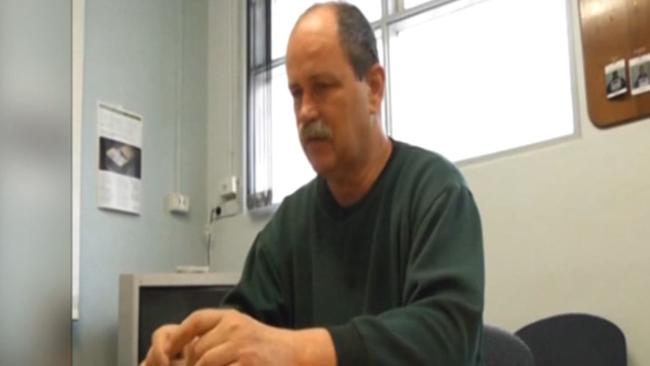
SA News
Don't miss out on the headlines from SA News. Followed categories will be added to My News.
THE Louise Bell murder case is based on the word of grandiose fantasists, appalling frauds and self-important big-noters, and cannot prove Dieter Pfennig is the killer, a court has heard.
On Tuesday, counsel for Pfennig asked the Supreme Court to reject three decades of evidence, aired during a 10-month trial, which prosecutors claim solves the enduring mystery.
Defence counsel, however, said prosecutors had failed to prove their case beyond reasonable doubt because:
TWO key witnesses, both former prison inmates, were unreliable and had given “objectively absurd” false evidence solely to benefit themselves.
CIVILIAN witnesses who gave evidence could not be relied on, despite their honesty, due to the passage of time, the publicity and speculation surrounding the crime.
EYEWITNESSES had given descriptions of the suspected abductor that did not, in any way, match Pfennig’s appearance in 1983.
THE person who abducted Louise must have had a car — to dump her pyjama top, if not her body, in the Onkaparinga River — and, at the time, Pfennig did not.
Grant Algie QC, for Pfennig, said those flaws made it possible, if not likely, someone other than his client was responsible for one of the state’s most infamous crimes.
“This is probably SA’s Azaria Chamberlain, where the public was shocked and outraged but also intrigued and drawn into the speculation of how this could have happened,” he said.
“There is no argument or dispute that this crime created enormous public interest ... there was discussion, speculation, theorising in the weeks, months and years that followed.
“The crucial issue to be determined is, of course, who did it? Or, more accurately, does the evidence establish beyond reasonable doubt that Pfennig took Louise Bell?
“We say the evidence falls far short of proof beyond reasonable doubt, and that there is evidence which tends to prove, as a matter of fact, that Pfennig did not do it.”
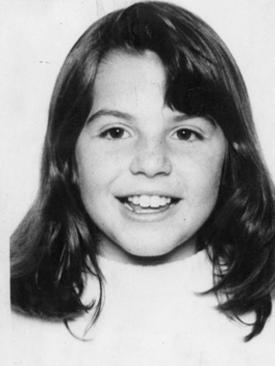
Pfennig’s trial began in September last year, enduring delays when he had a heart attack in his prison cell, and during his subsequent recovery.
The former teacher, 67, has denied abducting Louise, 10, from her Hackham West home in January 1983 and murdering her some time before March 1 that year.
Pfennig is the second person to be accused of the abduction — Raymond John Geesing served 16 months’ jail, in the 1980s, before he was acquitted on appeal.
Prosecutors have alleged a police re-enactment of the abduction proves Louise would have been taken from her bedroom in just 30 seconds.
Louise’s pyjama top was located by a neighbour who also received a phone call from the abductor, claiming the girl was “happy with them”.
The trial heard that, in 1983, a taxi driver who has since died told police he had driven a man from the Franklin St bus station to Louise’s street in March of that year.
The driver watched as he walked around the area, then took him back to the bus station.
Pfennig is already serving a life sentence for the 1989 murder of Michael Black, 10.
Neither child’s body has ever been recovered and, in their evidence at trial, prison inmates claimed Pfennig said they are buried together.
A former inmate, whose identity is suppressed, claims a “stoned and sobbing” Pfennig confessed to abducting Louise and then killing her “by mistake”.
Another prisoner, Nigerian cultist and convicted fraudster Stephen Ogho Akpata, also claims Pfennig confessed — both verbally and through a “bizarre” manuscript he wrote in jail.
Central to the prosecution case is a DNA sample taken from Louise’s pyjama top which analysis suggests is a one in one billion match to Pfennig.
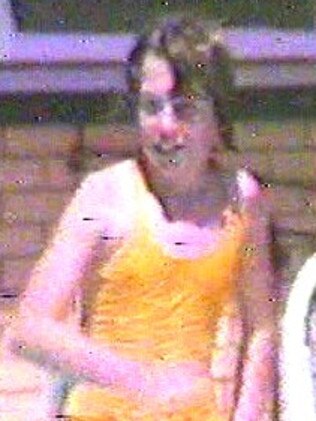
Defence counsel have fought that assertion — based on thousands of pages of scientific evidence written in Dutch — throughout the trial.
At one stage, they asked unsuccessfully for a six-month adjournment and another $250,000 in legal aid funding to challenge the evidence.
On Monday, counsel argued that sample — contained on a “piece of fluff” — was insufficient evidence on which to convict Pfennig.
On Tuesday, Mr Algie said there was no doubt Louise’s disappearance was a crime, little doubt she was taken from her bedroom and her top was “likely” immersed in the Onkaparinga River.
He agreed the real killer had not only phoned the neighbour but was also likely to be the man who had travelled, by taxi, from the bus station to Hackham West and back.
However, he said neither the description of the voice on the phone nor the appearance of the taxi passenger matched Pfennig, particularly his “distinctive” moustache and accent.
“There are strong grounds for submitting that was not Dieter Pfennig,” he said.
“There remains a reasonable possibility that it was Raymond Geesing, that he could have been responsible for this.
“There’s insufficient evidence to prove it, but that doesn’t mean it’s not a reasonable possibility.”
Mr Algie said testimony from Pfennig’s former neighbour, who said he joked “my alibi is sprung” when he learned police had visited the area, also pointed away from his client.
“If he had been responsible in any way, or had Louise Bell in his house, that realisation would be somewhat unnerving — but apparently not,” he said.
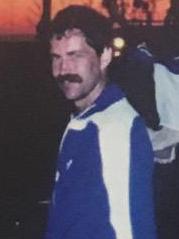

“It really isn’t the sort of thing you would expect somebody involved in the disappearance of Louise Bell to say, and to say as a joke.”
He reminded the court that, when Louise disappeared, Pfennig was without a car because his wife and daughters had taken it for a family holiday.
“The likelihood is the person who undertook the abduction would have had a car ... in order to remove a child in the days that followed, you would have had to,” he said.
“If the prosecution case is that the child was put in the Onkaparinga River, he would have had to have a car.
“It’s 3.6km from his house to the closest point on the Onkaparinga and 5.5km from his house to Old Noarlunga ... even if it’s just (disposing of) the pyjama top, you had to have a car.”
Mr Algie said alleged jailhouse confessions were always dangerous territory for courts, but especially so in the “flawed, extreme examples” of Akpata and the former inmate.
“They are not, for instance, a middle-aged tradesman doing a couple of years for death by dangerous driving or a young man who grew a cannabis crop,” he said.
“(Also), Pfennig is no garden-variety criminal ... he would be extremely well-known within the prison system (which is) a fertile environment (for claims of) false confessions.”
Mr Algie branded Akpata’s evidence as not merely untrustworthy but dangerous.
He reminded the court that one of Akpata’s lies was a promise he would bring Magic Johnson, Evander Hollyfield and Joe Frazier to Adelaide for a Christmas charity event.
“The ‘Reverend’ Akpata is a man of God — so he would assert — who has betrayed himself as a fantasist ... he has tried to inject falsehood into reality to gain credibility,” he said.
“In my submission, the character of the man is appalling ... he is a fraud ... he is not just a liar but a fantasist, a self-promoter, a big-noter, a man with grandiose notions.
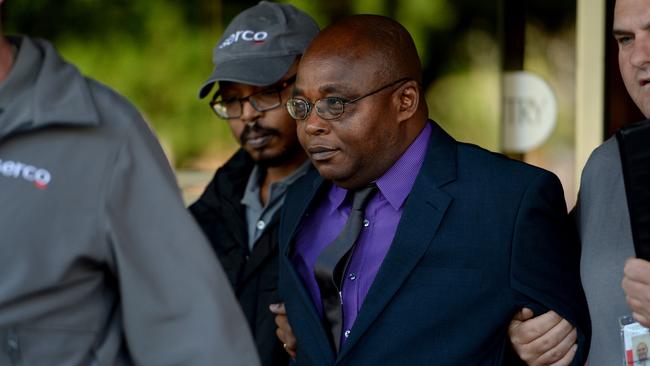
He said Pfennig had neither confessed nor written any such story, insisting Akpata invented them to stave off deportation.
He said Akpata was “so desperate” to remain in Australia that he had “claimed to be homosexual or bisexual” during one of his many self-represented litigations.
“He is precisely the sort of individual who would have no hesitation whatsoever in making an allegation of a false confessions if that, in any way, would promote his own self-interest,” he said.
Mr Algie repeated his warning the court should reject the other former inmate’s evidence because he is “unreliable and untruthful” due to mental health issues.
He said it would be “objectively absurd” for Pfennig to confess to such a person, and for the man to have kept it to himself had any such conversation occurred.
“Because of his unique personality traits and his anti-social personality disorder ... he has used this as a basis to aggrandise himself,” he said.
“He is a seriously troubled individual with a serious criminal history.”
Mr Algie said the remainder of the prosecution witnesses had been credible, honest people who endeavoured to help the court as best they could.
He cautioned against accepting their testimony, however, despite each having insisted their recollections of 32-year-old conversations with Pfennig were correct.
He said Pfennig had aroused no suspicion in 1983, making it unlikely the witnesses would have fixed the conversations in their minds because they had no reason to do so.
“You have credible, honest witnesses giving evidence events whereby, because of circumstances and time, their reliability is seriously in doubt,” he said.
“The situation is clearly under question ... an honest witness is not going to remember these conversations (after 32 years) ... to claim otherwise is confabulating.”
Acting Justice Michael David, who heard the trial in the absence of a jury, will hand down his verdict on November 14.


